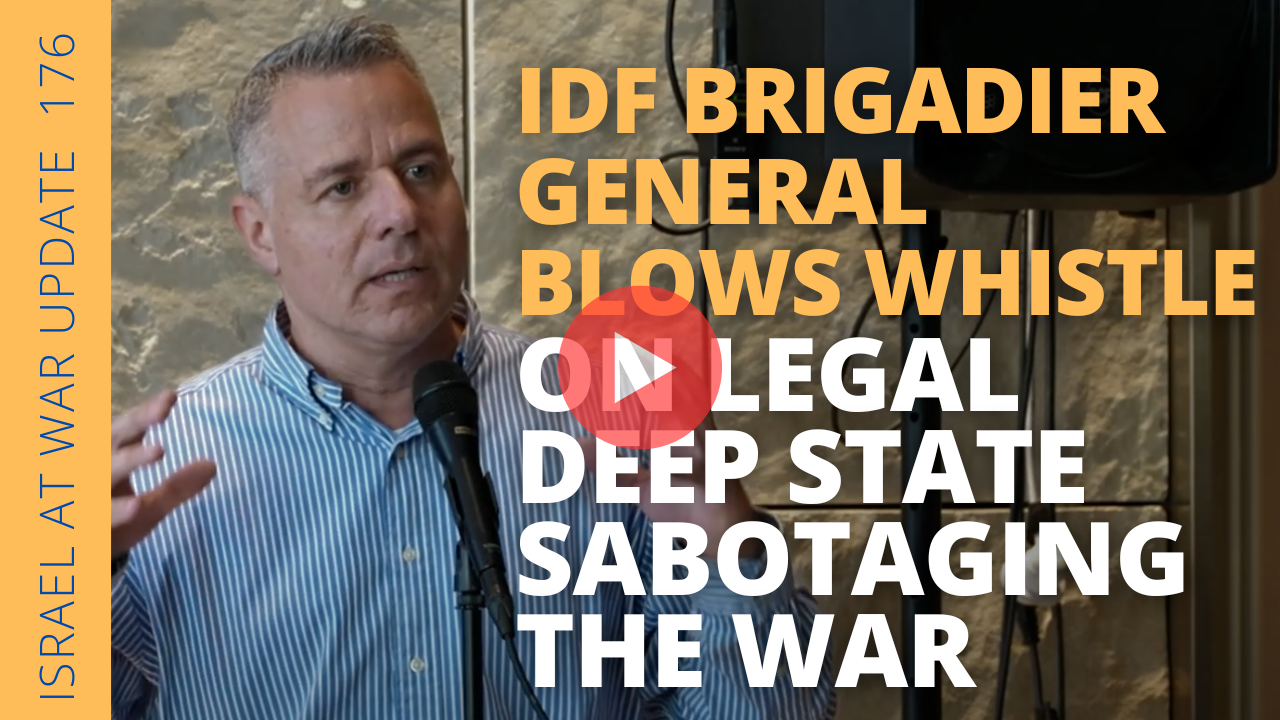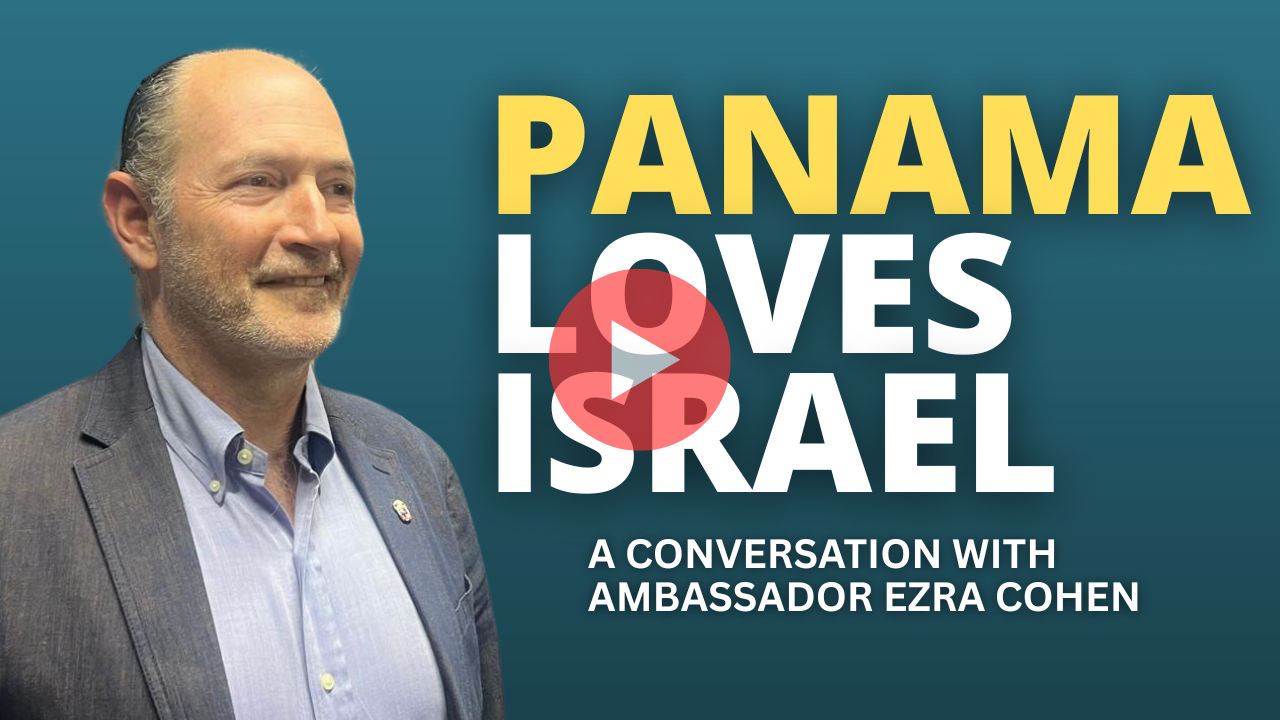The Trump administration’s move toward designating the Islamist group as terrorists is long overdue. But it makes no sense to treat the Brotherhood’s sponsor as an ally.
President Donald Trump finally took the first step on Nov. 24 toward an action that many of his allies and supporters have been calling for since his first term in office. He signed an executive order setting “in motion a process by which certain chapters or other subdivisions of the Muslim Brotherhood shall be considered for designation as Foreign Terrorist Organizations.”
The Brotherhood is a transnational Islamist group that spreads fundamentalist Sunni Muslim ideology around the world, preaching hatred for and war against the West—co-religionists who do not share their extremism, as well as for Israel and Jews. It acts as a support network for terrorists such as Hamas, which was founded as an offshoot of the Muslim Brotherhood, as well as for those who are working to undermine or overthrow non-Islamist governments in Arab and Muslim countries, such as those in Egypt, Lebanon and Jordan.
The grandfather of jihadism
The Brotherhood is an open and avowed enemy of the United States and is allied to many of those with American blood on their hands. As U.S. Secretary of State Marco Rubio has said, “the Muslim Brotherhood is the progenitor” and “the grandfather of all modern global jihadism.”
Moreover, to speak, as the executive order does, of only the group’s “military wing” being subject to sanctions as a result of the designation is to fall into the trap of thinking that organizational divisions within the group are meaningful distinctions with respect to terrorism and other illegal acts. As is the case with Hamas and Hezbollah, these are distinctions without a difference. Though different branches have different roles in their war on the West, all have the same objectives.
So, the question to be asked about Trump’s decision is not why the United States has done something that many Arab and Muslim countries, who rightly fear the group, have already done, and which members of the administration, including the secretary of state and White House staffer Sebastian Gorka, have openly called for. It’s why didn’t this happen in Trump’s first term or earlier in his second? And, just as importantly, why is the executive order Trump signed so narrowly drafted and tentative in its approach?
The answer is that the Muslim Brotherhood has powerful friends, both foreign and domestic, who seem to have Trump’s ear. In particular, the emirate of Qatar, which has spent vast sums freely to acquire enormous influence over the worlds of American business, education and politics, doesn’t want the administration to act against the group.

The question the executive order raises goes to the heart of the struggle to determine Trump’s Middle East policy. While the president has always been eager to fight Islamist terrorism and support American allies, such as Israel and moderate Arab governments that the Brotherhood is seeking to destroy, he is also clearly enamored of and influenced by Qatar and the American friends the emirate has purchased.
As a result, this order may turn out to be nothing more than an impotent gesture rather than a genuine policy shift aimed at combating a sly and dangerous foe of the United States. Unlike many other such orders that have flowed in plentiful numbers from the Oval Office as Trump has undertaken a comprehensive effort to overturn many of the policies of his predecessor and beloved by the Washington establishment, this one leads to no immediate action. Indeed, unless the forces within the administration that have pushed for the designation of the Brotherhood are ready to spend political capital and really fight to commit the government to rolling back the influence of the Islamist group, this may be as far as Trump goes on the issue.
A contradictory policy
This highlights a basic contradiction in Trump’s stance. You can’t seriously fight the Brotherhood and its terrorist offshoots like Hamas while at the same time cozying up to the government that is their chief donor and protector. Yet that’s exactly what the administration has done.
Qatar is not just the object of Trump’s trademark flattery when he is seeking to engage with allies or adversaries and to get them to do what he wants. It is being treated as a full-fledged ally of the United States and even as a nation whose security will be treated as a national priority to the point of recently issuing a White House statement to the effect that, “The United States shall regard any armed attack on the territory, sovereignty or critical infrastructure of the State of Qatar as a threat to the peace and security of the United States.”
That gives Qatar, which hosted the spiritual leader of the Brotherhood Yusuf al-Qaradawi and his successors, as well as the leaders of Hamas, impunity to act as a headquarters for international terrorism.
The argument in favor of close relations with the Gulf state, despite it being integral to the spread of terror and the Islamist ideology that is its foundation, rests on the notion that the emirate is an essential middleman in the effort to contain the threat from radical Muslims.
A successful foreign policy often requires leaders to see the world in shades of gray as opposed to merely black and white. So, it is arguable that there are times when the United States may want to deal with a treacherous government such as that of Qatar, in spite of its record and actions. But what the Trump administration—and, to be fair, what was also true of the Biden administration, which made it a major non-NATO ally—has done is to skew the balance between the two countries in favor of Doha.
Doha needs America, not the other way around
Qatar has played a double role in the region for years, simultaneously hosting a major regional U.S. airbase and a wide array of terrorist functionaries. The Al Udeid base is well-suited to help America project power in the Persian Gulf, especially after Biden’s catastrophic withdrawal from Afghanistan, in which the United States abandoned the Bagram base there to the Taliban. Moreover, Qatari officials have also been the intermediaries by which the United States was able to broker the ceasefire-hostage release deal with Hamas that halted the war in Gaza with Israel.
These are not unimportant considerations. But the problem with embracing Qatar is the misnomer that Washington needs the emirate more than it needs Washington. The truth is quite the opposite. Other nations in the Gulf could host that base. And it is equally obvious that playing the role of go-between with Hamas allows Qatar to both launder its international image and help its terrorist friends survive the war they started with the atrocities committed on Oct. 7, 2023.
By committing itself to an alliance with Qatar, the United States isn’t engaging in a productive transaction with a problematic frenemy. It is completely undermining any effort to craft a coherent anti-terrorism policy and setting itself up for more misery in the years to come. And a half-hearted executive order with no teeth in it about the Muslim Brotherhood can’t rectify this mistake.
Why is Washington so willing to ignore the obvious and embrace Qatar?
A great deal of attention has been focused on Qatar’s “gift” of a 747 jetliner to Trump to serve as a new Air Force One to replace one of the two other ones that have been in use for that purpose for the last 35 years. But that is more symbolism than a bribe. The plane will require extensive renovations for it to be used to securely transport a president, which will likely cost more than double its value at a reported $200 million. But the Qatari plane is still believed to be likely to wind up at a Trump presidential library and museum.
But whatever one thinks of the airplane, the answer as to how the emirate has acquired so much traction in Washington is no secret. Qatar’s influence-buying operation, which operates on a virtually unprecedented scale, has been enormously successful in either persuading many American leaders of its value as an ally to cause them to downplay its role in promoting terrorism or in purchasing them outright.
Israel-bashers like former Fox News host Tucker Carlson and his counterparts on the left, like congressional far-left “Squad” members Reps. Ilhan Omar (D-Minn.) and Rashida Tlaib (D-Mich.), often speak as if supporters of the Jewish state, specifically the AIPAC pro-Israel lobby, have bought an alliance with the United States. But the truth is that the amounts spent by AIPAC and pro-Israel sources on lobbying in Washington or in supporting political candidates are dwarfed by the vast sums expended by Qatar in the United States.
Influence buying
Doha is involved in lobbying, though it exerts more influence as a major player in the business world, creating connections with a broad array of political affiliations on both sides of the aisle. In this way, it has used its financial clout to help and/or bail out some prominent persons, such as Trump’s foreign envoy Steve Witkoff, with purchases amounting to hundreds of millions of dollars. It has also invested heavily in American media outlets that add to its ability to project its views on the world. That is in addition to the clout it has via its Al Jazeera news station, which dominates the market in the Arab and Muslim world.
Just as important is the way Doha has poured money into academia, essentially purchasing the Middle East studies departments at many prestigious institutions of higher learning. Qatar isn’t just the largest foreign donor to American education. It has played a part in ensuring that these schools are uniformly bastions not only of anti-Zionism, but also of exponents of anti-Western and anti-American ideologies.
The point here is that the differences with Qatar go far beyond the obvious ones in terms of the values of a diverse democracy and those of an Islamist absolute monarchy. Qatar does business with the West while playing both ends against the middle in a never-ending game of diplomacy with Washington in a way that can be represented as similar to that of any nation with interests that don’t coincide with those of the United States. The regime’s real goals, however, are no different from those of the Brotherhood—namely, to undermine and subvert the West.
Both Qatar and the Islamist government of Turkey, which plays its own double role seeking a restoration of the old Ottoman Empire and supporting terror groups like Hamas while also remaining a NATO member, have clout in Washington. They also sit on both sides of the American dispute with an aggressive, terror-supporting Islamist regime in Iran. They and their American clients and auxiliaries have a pro-Islamist agenda and were able to stop the first Trump administration from taking action against the Brotherhood. And they have helped limit its current tentative steps toward designating it as a terrorist group and, no doubt, think they can prevent the follow-up necessary to put the executive order into effect.
The irony here is that while the portion of the political right led by Carlson that is hostile to Israel, and soft or even welcoming to antisemitism, likes to speak of defending “America First” or “America only” policy priorities against those who support the alliance with Israel, who are falsely labeled “Israel firsters.” But they seem completely uninterested in noting the way a country like Qatar is actively seeking to undermine a bipartisan American foreign-policy goal of opposing Islamist terror that threatens the West. While Carlson falsely labels Qatar as a faithful U.S. ally and trashes Israel as manipulating Washington against its own interests, the truth is just the opposite. The real opponents of “America First” are not supporters of Israel but the pawns, both witting and unwitting, of the jihadists of Qatar and the Brotherhood.
Trump’s choice
Trump faces an important choice about the Muslim Brotherhood. If he allows this toothless order to be as far as he goes with respect to efforts to stop this dangerous group, then he will be demonstrating that the administration is hopelessly compromised by its ties to Qatar. That ought not to happen. The president needs to understand the dire nature of the threat from fanatic Islamic terrorists, along with the insidious impact the Brotherhood’s Qatari funders and hosts are having on American media, culture and education. And, as he’s done time and again on many issues—not least his support for Israel—he needs to ignore the voices telling him that protecting U.S. interests means groveling to establishment thinking and Islamists.
The time is long past due for the United States to recognize that it is at war with the Brotherhood and act accordingly. If it doesn’t, it will just be setting in motion a process by which those who seek to spill American blood as well as that of Israelis will be given a leg up in their generational war against the West. That is something an administration that represents its policies as a clean break from the failed ideas of the Washington establishment and which says it is all about defending Americans, should avoid at all costs.

 Whatsapp
Whatsapp




